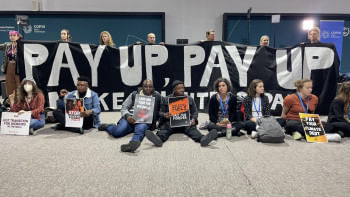NHRC Act needs to be reevaluated

Law Desk: 'Stand up for someone's rights today' is the slogan of this year's World Human Rights Day. How do you plan to materialise the mandate of this slogan in the context of Bangladesh?
Kazi Reazul Hoque (KRH): Keeping in mind the importance of human rights for all, this year the National Human Rights Commission (NHRC) has translated the slogan in Bangla as follows: “Eso Sobai Oikko Gori, Sobar Odhikar Rokkha Kori”. Due to the recent rise of extremism and terrorism globally, the significance of Human Rights Day 2016 has been felt so intensely not only in Bangladesh, but also in other parts of the world. Like previous years, we have observed the Day in collaboration with different NGOs working on various human rights issues domestically and internationally. In line with the slogan of Human Rights Day we have already established two regional offices in Rangamati and Khulna after six years of constant endeavour and advocacy. We plan to set up more eight district offices by June 2017. I believe local NHRC offices will help the victims of human rights violation take immediate step to have legal remedies.
LD: As we know the NHRC has some thematic committees to work for the protection and promotion of human rights. Would you explain how they work?
KRH: In association with the UNDP, we conducted a human rights perception survey to identify the most vulnerable communities and take concerted efforts for the protection of their human rights. Keeping in mind the findings of the survey and after the reconstitution of the Commission in August this year, we reformed nine thematic committees (such as: Committee on Women's Rights, Committee on CHT Affairs, Committee on Migrant Workers, etc.) with the decisions of our NHRC members and officials. It is to mention that these committees are not exclusively NHRC committees; rather they are the committees of human rights activists. Both government and non-government rights activists are members of these committees which work in a focused way to report on the situation of specific human rights.
LD: In recent time, minorities including Hindus and Santals are facing rampant human rights violations. What actions NHRC has taken in this regard?
KRH: We have already conducted several investigations on such incidents. And what our investigation report found was the 'negligent and lack of commitment' of the local administrations to prevent such incidents to take place. The NHRC believes local police, district administrative and union parishad offices didn't play their role effectively, and their failure and non-action particularly led to such drastic incidents. The concerned officials are thus responsible. Apart from that, some political elements (specially the political influence of the ruling party) allegedly caused the incidents. Moreover, the way Santal indigenous peoples were evicted was not appropriate. No one can be evicted from land without adequate notice. These incidents are clear violation of human rights – the reports of which we've already officially sent to the government. The NHRC was ready to file a criminal case on behalf of the Santals; but we are happy that a case is already filed in the police station and the High Court Division has already suo moto intervened into the matter. We will surely follow-up the matter.

LD: What would you say about the recent Rohingya crisis as well as the attitude of the government towards them?
KRH: I think the Myanmar government is primarily responsible to protect its peoples from violence and persecution. The crisis should be resolved by the Myanmar government by itself. Bangladesh is already overburdened with sheltering many Rohingyas who are staying in the UNHCR-camps of Bangladesh. Moreover, there are many undocumented Rohingyas. We have great sympathy for the Rohingya victims. But the question is: how long will we keep them in our country? We have showed our humanity towards them. If we allow them for time immemorial, we will be violating rights of the local people. Border-side district like Cox's Bazar cannot afford 400,000-500,000 Rohingyas anymore. Allegations are also heard that these Rohingyas are associated with committing crimes such as human trafficking and trafficking of drugs and arms. When Bangladesh is dealing with the recent rise of terrorism, it cannot afford anymore Rohingyas with possible danger.
LD: What are the challenges for the NHRC to protect human rights and empower its implementing tools?
KRH: One of the challenges that the NHRC has is the inadequate number of support staffs with required knowledge of human rights. We also believe that the existing law needs to be revisited extending the power of the Commission to directly investigate against the members of the Republic/public servants (specially the disciplined force or the police) for the allegations of human rights violations committed by them. Setting up of an independent secretariat is also a requirement for ensuring independence and effective functioning of the Commission.
LD: Thank you for your time.
KRH: You are welcome.


 For all latest news, follow The Daily Star's Google News channel.
For all latest news, follow The Daily Star's Google News channel. 



Comments